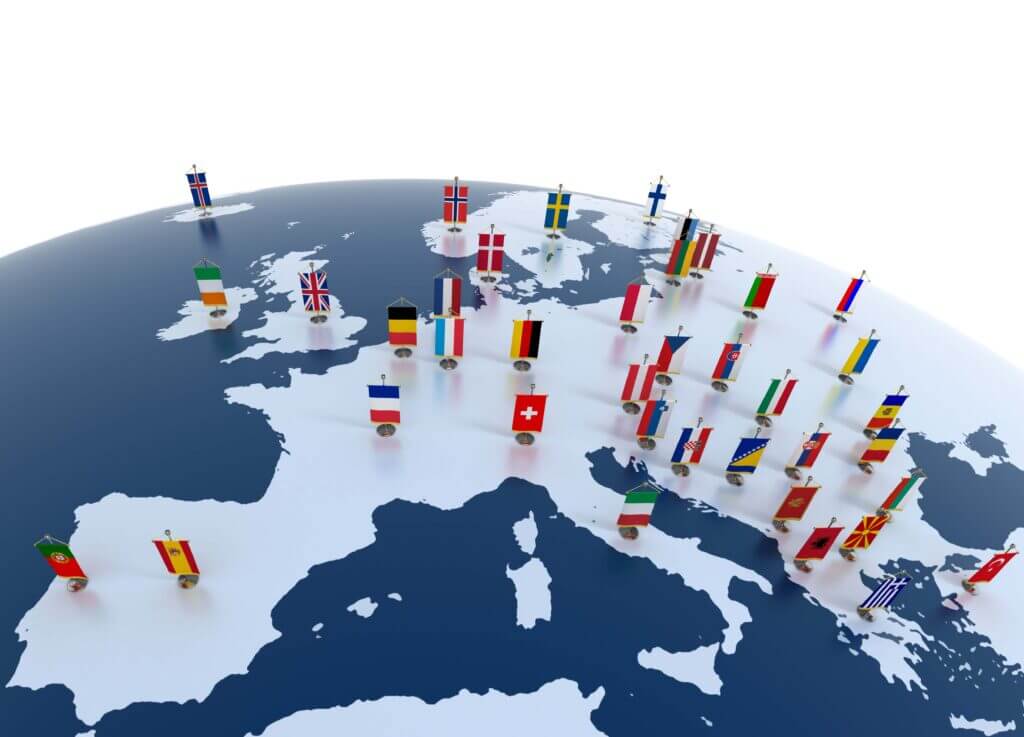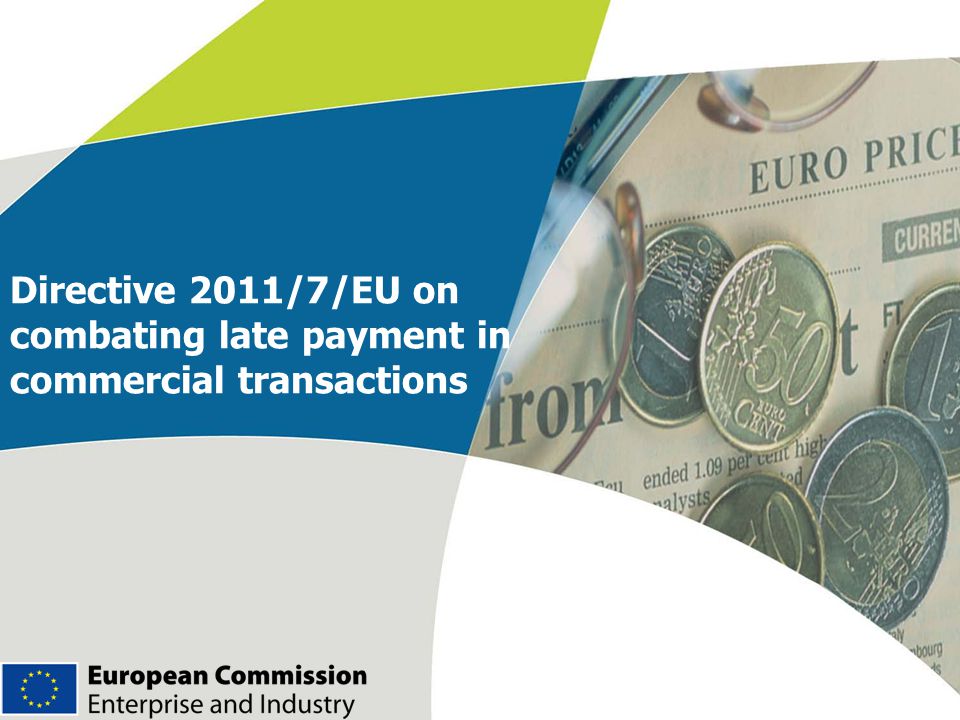2023 Guide To Collecting a Debt in Europe
4D Contact, Global Debt Recovery and Credit Management ServicesWritten by Richard Brown
Read it in 9 minutes
 1200
627
1200
627
Written by Richard Brown
Read it in 9 minutes
Richard Brown
Written by Director of International Debt Recovery & Credit-Control provider 4D Contact, Richard has over 25 years of experience helping global businesses optimise the efficiency of their credit and collections processes to meet commercial objectives.
15 May 2023
Throughout Europe, thousands of SME’s go bust every year due to cash flow issues caused by the late payment of invoices. In the current economic climate, where businesses are already feeling the pinch of high inflation and economic contraction, being confident you can secure payment from your customers is critical – wherever they are located. Outlined in this article are some of the strategies businesses can implement when looking to collect a debt in Europe.

With a total of 44 countries, each with different languages, laws, payment regulations and customs, it can be both time consuming and complicated to collect a cross-border debt in Europe. Debt collection procedures tend to vary significantly between individual countries; they will be different if the debt is between two countries that are registered as part of the European Union, or if one, or both countries, are outside of the EU.
Given these complexities, it is not uncommon for businesses to employ a third-party debt collection agency to manage the process on their behalf. With native speaking agents on the ground, and day to day expertise in cross-border collections, they can often deliver swift results when internal efforts have drawn a blank.
This Guide to Collecting a Debt in Europe will provide an overview of the key considerations when attempting to collect a cross border debt between two European countries including:

One of the benefits of being part of the EU is that business owners can use EU legislation if they are chasing payment from a customer based within it. These include:
The Late Payment Directive 2011/7/EU
This was adopted in February 2011 and is designed to protect European businesses, in particular SMEs, against the issues arising from late payment. It sets out a clear time frame in which business are expected to pay invoices and puts into European law the right to add Late Payment Act interest and compensation to the principal sum owed, as well as any third-party collection costs.
The European order for payment is a simplified procedure for cross-border monetary claims between two EU member states which are uncontested by the defendant. All EU Member States (with the exception of Denmark) are connected to this procedure. The advantage of the European order for payment is that it is a simple, fast and cheap way to collect international claims. You, your collection agency, or your solicitor can issue a European Payment Order by downloading Form A of Annex I to the EEW Regulation from the European e-Justice portal and filing it with supporting documents to the relevant court. 14 days after receipt, the court will send a payment order to the debtor. If the debtor does not respond contesting the claim within 30 days, then the payment order becomes final. The payment order is then a valid and enforceable judgment that can be executed in every EU member state.
A European payment order can only be used for undisputed international claims. If the debtor contests the claim in any way this procedure cannot be followed.
European Small Claims Procedure
If the customer denies liability or queries your claim you can use the European Small Claim Procedure as long as the buyer owes you less than €5,000.
A judgment given through this procedure is recognized and enforceable in all other EU Member States. If you wish to start a claim, “Form A” can again be downloaded from the European e-Justice portal. When completed this form and any supporting documents must be sent to the court that has jurisdiction. On receipt of the defendant’s answer to the claim the court will either give a judgment on the small claim, request further details in writing from either party, or summon the parties to an oral hearing. It is not necessary to be represented by a lawyer at an oral hearing and if the court has appropriate equipment the hearing will be carried out through videoconference or teleconference.
The judgment is enforceable in all the other Member States of the European Union and enforcement takes place in accordance with the national rules and procedures of the Member State where the judgment is being enforced.
European Account Preservation Order (EAPO)
If you or your business are owed money by a company based in another EU member state, the courts can order that the funds in the other company’s bank accounts are frozen.
The procedure is known as the European Account Preservation Order (EAPO) and its aim is to make EU debt recovery quicker and easier. You don’t need to inform the debtor in advance thus ensuring that they don’t move, hide or spend the funds held in their account before you can reclaim money owed to you. You can apply for an EAPO in any EU country except Denmark. The application is once again made using the online form and you must ensure that any relevant supporting documents are sent with your application.
If you are a debtor who is not in agreement with EAPO issued, you can challenge the decision by filling out the remedy application form (form VII) and either party are able to appeal the remedy decision using the remedy appeal form (form IX).
The main difference between collecting a debt from inside the EU and from a country which is not an EU member state (which now includes the UK) is the lack of access to centralised cross-border legislation and legal processes. However, whilst a debt being outside the EU might add complication, it does not make it impossible to collect. Outlined below are some of the options available when it comes to collecting a debt outside of the EU.
Leverage International Expertise
In order to avoid time delays and unnecessary costs, legal action is best to be considered a last resort. If you have an international debt outside the European Union, it is worth considering employing a debt collection agency that specializes in international collections. Agencies such as this can be found in every country; they don’t have to be based in the country where the debt is located as many have offices in multiple territories and they will often work on a no win no fee debt basis. Knowledge of local language, customs and procedures can expediate a payment which had hitherto seemed impossible to collect.
File a claim in local court
If starting debt collection proceedings against a client based outside your country, you must follow the laws of the client’s country. Therefore, if you’re pursuing debts from a German client, but your company is based in Turkey, then German debt collection law will guide the process. Making an international legal claim is not always as expensive as perceived, and most countries have broadly the same legal options for having your outstanding invoice collected. Although, as the details of these procedures can vary from country to country with many countries also having other judicial collection procedures, it can be difficult to manage without some external expertise. However, many debt collection agencies, including 4D Contact, have local offices or legal representative in multiple countries and, with their experience in local laws and procedures, can guide you through the process.
Reciprocal Agreements
It is also possible that the country in which you are trying to collect the debt in has a reciprocal agreement with your country. This enables you to track down your debtor and enforce your claim in that country in much the same way as through the EU procedures and often just requires a simple form and small nominal fee. There are many countries where this is possible, and you should check this with your debt collection agency or lawyer before enforcing the debt. It is worth being aware that these procedures can sometimes be lengthy as the time the defendant has to acknowledge service and/or file a defense can vary significantly from country to country.
Highlight applicable law in any cross-border contract
In order to simply the process it is highly advisable to have a clause in your contract submitting the relationship between you and your customer or client to the courts of the country in which your business is based. This means that in the unfortunate eventuality of a dispute, the debtor has agreed contractually to be held accountable to your national laws.
How you proceed in collecting a debt from a country in Europe will vary greatly depending on where the creditor and debtor are located. But whether the debt falls within EU jurisdiction or outside there are multiple options to ensure you can collect what is owed. Whether your debt is within the EU or outside it is worth considering accessing external expertise to help support you through the debt collection process. When chasing late payments, it is difficult enough to deal with customers in your own country, let alone navigate the complexities of different languages, laws, payment regulations and customs.
Author: Richard Brown
Director of outsourced credit management solutions providers Barratt Smith and Brown and 4D Contact, and a share-holder in fintech order-to-cash company Invevo, Richard has over 30 years of experience helping clients build strategic process solutions to mitigate challenging financial markets.
If you have a challenge within your credit and collections process and would like to discuss how 4D Contact outsourced credit management solutions could help, please click here to request a call back.
Contact us now at sales@4dcontact.com or on 020 37691487 for a no-obligation quote.
![[TOFU offer] eBook – A C-Suite executive’s guide to Delivering successful order-to-cash transformation](https://www.4dcontact.com/wp-content/uploads/2019/08/img-ebook-preview-order-cash-transformation.png)
A review of the considerations and tactics critical to achieving successful transformation within your order-to-cash function
Download free guide